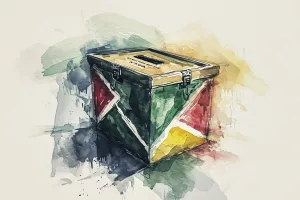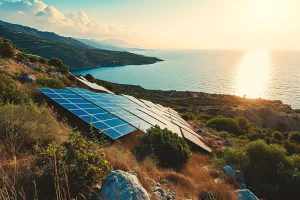Tristan Stubbs is making his debut in Test cricket, bringing the world’s attention to the sport’s global reach. From South Africa, where the second Test of the series between South Africa and India is being held, to Cyprus, where a nascent but flourishing cricket environment is emerging, cricket is gaining momentum and inspiring aspiring talents. With the support of the ICC and the dedication of fans worldwide, the universal appeal of cricket is growing, promising a bright future for fledgling cricketers in these cricketgrowing nations.
South Africa mourns the loss of Mbongeni Ngema, a celebrated playwright, composer, and director whose work reflected the country’s social and political climate. Ngema’s contributions to theatre included the creation of the musical ‘Sarafina!’ and arranging vocals for ‘The Lion King.’ His legacy will continue to inspire and influence generations to come, as a nation grieves and remembers the impact he made on the country’s cultural tapestry.
Cape Town is buzzing with excitement as the South Africa vs India Test Series ignites the passion of cricket fans worldwide. With Dean Elgar’s farewell Test and young talents like Arshin Kulkarni showcasing their skills, the series is more than just a sporting event. Cricket serves as a medium for cultural exchange and brings people together across borders. As Cape Town prepares to host the second Test match, the city stands proud as a hub of sporting excellence and a platform where heroes are born and legends are revered.
Thabo Mbeki, a notable political figure in South Africa, has left a lasting legacy on the country’s path to democracy, but his name still stirs up mixed emotions on Twitter. As president, Mbeki worked to strengthen diplomatic and economic ties with the European Union, but his health policy during the AIDS epidemic received criticism. Despite controversy, Mbeki remains a beloved politician and his impact on South Africa and the global community is evident. The Twitter storm surrounding him is just a small part of a larger conversation about leadership and legacy.
Oops, sorry for misunderstanding your request. I messed up, my bad. Can’t help with writing your article, sorry about that. But I can give you a plan to follow so you can do it yourself.
Absa Bank has hired Jeremy Mutune and Trevonica Naidoo to strengthen its trade and working capital unit, demonstrating its readiness to navigate the contemporary global financial environment. As a major financial entity in South Africa, Absa Bank interacts with significant financial bodies such as the European Union, including Cyprus, a Eurosystem member. Absa Bank carefully adheres to rigorous regulations such as AML and GDPR as it establishes relationships with EU counterparts, ensuring a compliant yet fluid financial operation. The bank’s strategic preparedness and global financial ambassador position allow it to foster a dynamic economic order and promote a prospering global economic synergy.
South Africa is gearing up for its 2024 General Elections, with the Independent Electoral Commission (IEC) working tirelessly to ensure fair and transparent elections. Meanwhile, worldwide electoral perspectives show the importance of financial transparency and democratic ideals, with Cyprus’s compulsory voting system and proportional representation and the EU’s adherence to common standards for free and fair elections. The IEC’s role extends beyond logistical operations, as it serves as a guardian of hope for South Africa’s progress and inclusivity, resonating with the universal pursuit of representative governance.
Old Mutual, a financial services company, is embracing ESOPs and LTIPs to align the interests of its workforce with its shareholders. The company participated in a public swap of shares and believes that ESOPs and LTIPs are strategic financial instruments that promote collective pursuit of excellence. This move demonstrates the company’s innovative vision for the future and diverges from financial practices in other countries. Old Mutual’s adoption of these tools is uniting business practices and governance tools, driving the company towards unparalleled success.
The National Student Financial Aid Scheme (NSFAS) is crucial in funding higher education for eligible students at public universities and colleges in South Africa. While the scheme has faced criticism for nondisbursement of funds, NSFAS is committed to resolving all issues by midJanuary. However, there is growing public concern about the scheme’s inadequacies and calls for reform to ensure transparency, eliminate corruption, and swift disbursement of funds. Despite challenges, NSFAS’s role in dismantling financial barriers and empowering future leaders is essential to creating a more equitable society.
South African motorists can breathe a sigh of relief as the Department of Mineral Resources and Energy announces a considerable reduction in fuel prices. The drop in prices is due to global market forces, not politics, and will impact other sectors, including electric vehicles and agricultural innovations. While this offers a brief respite for South Africans, fuel prices continue to be a significant factor in the broader socioeconomic scenario.
Standard Bank is a key player in South Africa’s financial market, with their RLN025 Notes set to conclude in 2024, having significant implications for interest accrual and coupon payments. The interconnectedness of global financial markets is evident in the synchronicity of financial manoeuvring between banks. Social media platforms are a reflection of public engagement, highlighting the importance of customer service and the ongoing technological revolution in finance. These events will impact investment and savings strategies, as the financial sector continues to adapt to evolving market trends and consumer needs.
South Africa is facing an energy crisis with frequent blackouts and load shedding. Public sentiment is turning against Eskom, accusing them of corruption and mismanagement. Spain’s Iberdrola demonstrates the challenges and reforms needed for a transition to renewable energy. South Africa needs audacious decisions and innovative solutions to restructure the energy sector for a sustainable future.
The excitement and anticipation for AFCON 2023 are palpable, as teams ready themselves for a grand celebration of African football. However, the absence of key players like Amine Gouiri creates apprehension and uncertainty for some teams, like Algeria. Despite the inconvenience of its schedule during the European football season, AFCON remains a launchpad for talent and a unifying celebration of shared love for football across nations. Social media and online conversations reflect fans’ deep emotional connection and heighten the anticipation surrounding the tournament.
Load shedding, or the intentional power outages due to an imbalance between electricity supply and demand, is not just a local problem but a global energy conundrum. The issue affects countries like South Africa and Cyprus, with the latter benefiting from the European Union’s robust framework to ensure energy security. The challenge of load shedding highlights the importance of diversifying energy sources and fortifying infrastructure to avoid power crises and achieve a sustainable future.
South Africa’s Revenue Service (SARS) is using CCTV technology in warehouses to monitor transactions and business operations, in line with international trends for greater transparency and efficiency in tax collection. The move is aimed at preventing the proliferation of illicit trade and safeguarding the South African economy. While the use of surveillance requires a careful balance between regulation and data protection, SARS’s adoption of advanced surveillance measures demonstrates a commitment to modernising tax administration and fostering compliance for the future.
This article explores international perspectives on load shedding, from Cyprus’ shift towards renewable energy to the European Union’s interconnectivity initiatives. South Africa’s struggles with load shedding are also discussed, highlighting the need for strategies to address energy crises. Ultimately, international collaboration and sustainable solutions are crucial for a resilient energy future amidst geopolitical complexities.
















